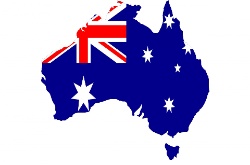Pacific Governments And Partners Convene To Strengthen Disaster Risk Reduction In Agriculture
14 November 2022
Suva, Fiji – Representatives from Government, the private sector, as well as development partners, from Fiji, Samoa, Tonga, and Vanuatu met last week for an urgent review of risk reduction strategies in the face of increasing disaster impacts on agricultural value chains in the region.
The Regional Workshop on Disaster Risk Reduction (DRR) for Sustainable Agricultural Export Value Chains was funded by the European Union through the Safe Agricultural Trade Facilitation through Economic Integration (SAFE PACIFIC) Project in the Pacific Community (SPC).
SPC's Land Resources Division Markets for Livelihoods Programme Manager Dr. Viliami Kami said the workshop comes at a crucial time as SPC country members are faced with increasing crises such as natural disasters and the COVID-19 pandemic. In the region the merging of broadening crises, the intersection of food systems and climate change is critical.
“Last night we heard the story from our Tongan colleagues on the impact of the volcano explosion on agriculture,” said Dr. Kami. “This is another critical issue facing the Pacific. We will see growth in impact on our agricultural value chains due to climate change and natural disasters over the coming years. From severe weather to sea level rise, increased salinity in soil only increases the risk to our agriculture and biodiversity.”
“It was important to convene this workshop and bring together the logistics people, packaging companies, supporting agencies like the Ministry of Agriculture, biosecurity authorities, and everyone who works along the Agricultural value chain to identify these risks and develop solutions. We understand our context clearly- the potential we have for trade with our rich resources, along with existing barriers we face because of our geographical location and socio-economic history and politics.”
Workshop participants collaborated to identify Pacific agriculture sector DRR knowledge gaps, discuss solutions and strategies to reduce agricultural value chain risks and map a way forward for regional approaches to improve resilience.
“We are all aware that the Pacific region is prone to natural disasters like tropical cyclones, floods and volcano eruptions. Micro, small and medium enterprises are vulnerable to shocks from disasters, which affects their growth and survival,” said EU Programme Manager, Economic Cooperation and Agriculture, Alejandro Matos-Lopez.
“However, natural disasters are not the only risk for the enterprises. Access to finance, financial crises, and logistics issues such as biosecurity, transportation and disruptions of supply chains also affect normal production and productivity. In addition, unexpected international crises like the COVID-19 or Ukraine war exacerbate vulnerabilities along our agricultural value chains and roll back progress on ongoing work,” he said.
“This meeting was very important because it gave us a platform to share the challenges and risks we are facing with our agribusinesses,” said Misileti Satuala, co-owner of Satuala Development with her husband Aliimalemanu Ropati Satuala. “Hearing stories from other Pacific micro, small and medium enterprises, we realised that we are not alone and that Samoa still has a lot of work to do in supporting exporters,”
Participants mapped a way forward on strengthening the regional approach to DRR for Agricultural Value Chains.
“SPC remains committed to working with our member countries in strengthening resilient, sustainable agricultural value chains, one of the backbones of Pacific Livelihoods,” said Dr. Kami.
The workshop wound up with a visit to the Bula Coffee processing facility in Sigatoka, Fiji. Participants toured the coffee and agritourism facility and heard from Bula Coffee’s owner and staff on building community resilience efforts.


 Australian Catholic University: Principals Navigate Growing Challenges As Anxiety, Depression Increase And Violence, Workloads Intensify
Australian Catholic University: Principals Navigate Growing Challenges As Anxiety, Depression Increase And Violence, Workloads Intensify SNAP: Survivors Deliver Vos Estis Lux Mundi Complaints Against Six Cardinals To Vatican Secretary Of State Parolin
SNAP: Survivors Deliver Vos Estis Lux Mundi Complaints Against Six Cardinals To Vatican Secretary Of State Parolin UNICEF Aotearoa NZ: Myanmar Earthquake A Further Blow For Millions Of Children
UNICEF Aotearoa NZ: Myanmar Earthquake A Further Blow For Millions Of Children Greenpeace: 'Desperate And Deceitful'- Deep Sea Mining Frontrunner Turns Its Back On Pacific Nations
Greenpeace: 'Desperate And Deceitful'- Deep Sea Mining Frontrunner Turns Its Back On Pacific Nations 350.org: Australia Announces Election Dates, Pacific Islanders Rally To Vote For Climate
350.org: Australia Announces Election Dates, Pacific Islanders Rally To Vote For Climate UNICEF Aotearoa NZ: Global Aid Funding Cuts - 14 Million Children At Increased Risk Of Severe Malnutrition And Death
UNICEF Aotearoa NZ: Global Aid Funding Cuts - 14 Million Children At Increased Risk Of Severe Malnutrition And Death